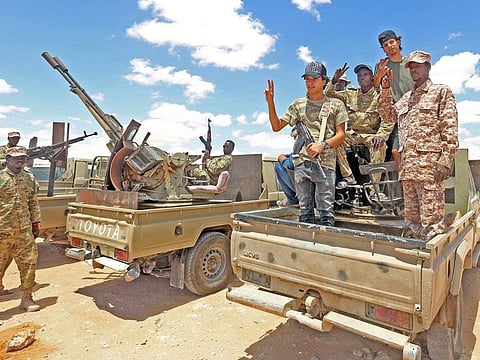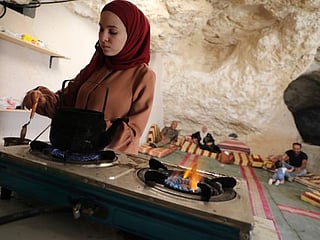Ending Turkish intervention crucial for peace in Libya
Ceasefire offers a chance to end conflict and start a political process to reunite nation

Also In This Package
The declaration of a ceasefire in Libya should lead to a new chapter in the war-ravaged country, based on a political process to reunite the nation, restore stability and end foreign intervention.
Fayez Al Serraj, the prime minister of the Government of National Accord based in the capital Tripoli, and Aguila Saleh, the speaker of the rival elected parliament based in the east, on Friday called for a ceasefire, cessation of military hostilities, restart of a political process and resumption of oil production and exports.
Libya was plunged into a conflict that split the country since the overthrow of Muammar Gaddafi in 2011. The ceasefire call is a major breakthrough. Both Al Serraj and Saleh seem to agree on the need to demilitarise parts of the country.
The world has immediately lent its support for the announcement. The United Nations Secretary-General Antonio Guterres said he hoped the declaration “will be respected immediately by armed forces from both sides.” Guterres urged the Joint Military Commission to act on the ceasefire call and called on all parties “to engage constructively in an inclusive political process” based on the outcome of a conference of world leaders in Berlin in January, which had sought an arms embargo and a roadmap for a political settlement.
The UAE’s Foreign Ministry also welcomed the initiative. “It is time for the guns to fall silent as the solution in Libya is invariably political through an inclusive dialogue based on agreed international and regional terms of reference,” UAE Minister of State for Foreign Affairs Anwar Gargash said on Twitter. The Gulf Cooperation Council, Egypt and western countries echoed the sentiment.
Also Read: Will Egypt intervene militarily in Libya?
Also Read: A dramatic turn of events in Libya
Also Read: Libya is an ultimate test for the Arab order
However, it remains to be seen how credible Al Serraj’s declaration is because his government has been increasingly looking like a proxy of Turkey. The government of Recep Tayyip Erdogan, with an eye on Libya’s oil resources, has established a military base west of the country and has been sending troops, mercenaries, and heavy weaponry. Ankara’s intervention has escalated the war and led to the failure of previous attempts to end the fighting.
“A ceasefire blocks the way for foreign military interventions and ends with the expulsion of mercenaries and dissolving the militias to achieve comprehensive national sovereignty,” Saleh said.
This will prove the most critical, and perhaps the trickiest, part of the new initiative — a real test of Al Serraj’s commitment to peace. He must end his reliance on Turkey for peace to prevail in Libya.




